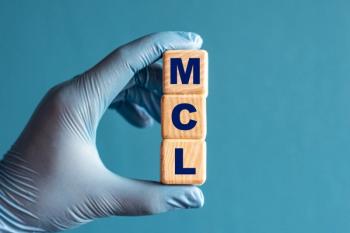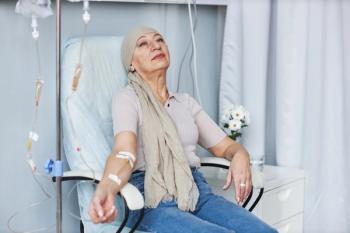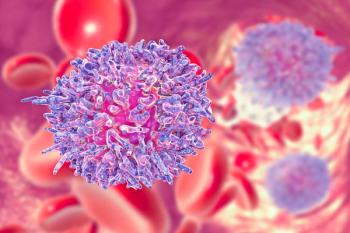
Fostering communication and shared terminology is key.

Fostering communication and shared terminology is key.

Ryan Haumschild discusses the evolving treatment landscape for patients with multiple myeloma.

Additionally, the high cost of the cell therapy raises concerns for broader access.

Compared with standard of care chemoimmunotherapy, acalabrutinib with bendamustine and rituximab reduced risk of death or disease by approximately 27%.

Participants in the study had durable response for over 1 year, in addition to positive efficacy indicators.

Adopting the Planetary Health Diet may reduce overall risk of chronic disease and premature death.

A pharmacist examines the intersection of medicine and humanity.

Observation time on subsequent injections of subcutaneous daratumumab may be safely removed from institutional policies to reduce chair time.

The indication is for adult patients with primary advanced or recurrent endometrial carcinoma and is the third indication that pembrolizumab has received for this disease state.

The FDA approved blinatumomab for treatment of patients with CD19-positive Philadelphia chromosome-negative B-cell precursor acute lymphoblastic leukemia.

Durvalumab plus carboplatin and paclitaxel, continued with durvalumab monotherapy, decreased the risk of disease progression or death by 58%.

Persistent chemotherapy drug shortages challenge oncology providers. American Oncology Network employs a drug shortage committee for organized shortage management that involves pharmacists and interdisciplinary stakeholders.

As patients take more proactive roles in their health, they may feel too intimidated to discuss herbal medicinal use with their providers or may be unaware of potential interactions with their drug therapies.

Trametinib may become an alternative treatment to hematopoietic stem cell transplantation in patients with relapsed or refractory juvenile myelomonocytic leukemia (JMML).

Brentuximab vedotin in combination with lenalidomide and rituximab had a favorable safety profile for patients with relapsed/refractory diffuse large B-cell lymphoma.

Repotrectinib has also shown significant efficacy in ROS1 fusion-positive non¬–small cell lung cancer (NSCLC), which was also studied in the TRIDENT-1 trial.

This article provides an overview of data supporting the utility of covalent Bruton tyrosine kinase inhibitors in chronic lymphocytic leukemia and details important considerations when choosing among agents.

Amplification of chromosome 1q is associated with poorer treatment outcomes for patients with relapsed/refractory and newly diagnosed multiple myeloma.

Incorporating ethical principles at all levels can ensure the best possible outcomes under difficult circumstances.

Strategies to advance sex and gender equality nationally and globally in oncology have been initiated in recent years.

Drug shortages, such as the shortages of cisplatin and carboplatin in 2023, have significantly affected oncology.

Osimertinib demonstrates improved progression-free survival for stage 3 epidermal growth factor receptor-mutated (EGFRm) lung cancer.

After allogeneic stem cell transplantation overall survival and relapse-free survival rates in patients with relapsed or refractory acute myeloid leukemia were 52% and 47%, respectively.

Imetelstat (Rytelo; Geron Corp) is a first-in-class telomerase inhibitor.

Nicolas Girard, MD, PhD, discusses the results of the PALOMA-2 trial, highlighting the subcutaneous (SC) delivery of amivantamab combined with lazertinib as a first-line treatment for advanced non-small cell lung cancer (NSCLC) with EGFR mutations.

Lisocabtagene maraleucel is being investigated for mantle cell lymphoma, relapsed or refractory (R/R) large B-cell lymphoma, and R/R follicular lymphoma.

Pharmacists play a crucial role in managing pain for cancer patients in palliative care.

Compared with pembrolizumab alone, the combination treatment showed stronger recurrence-free survival and distant metastasis-free survival in patients with resected high-risk stage III or IV melanoma.

Data from the PERSEUS trial supports use of daratumumab in combination with bortezomib, lenalidomide, and dexamethasone followed by daratumumab and lenalidomide maintenance as a new standard of care for patients with newly diagnosed multiple myeloma.

Results from the initial safety run-in of MajesTEC-7 indicate that the combination of teclistamab, daratumumab, and lenalidomide in newly diagnosed multiple myeloma (NDMM) shows a manageable safety profile with early signs of efficacy.